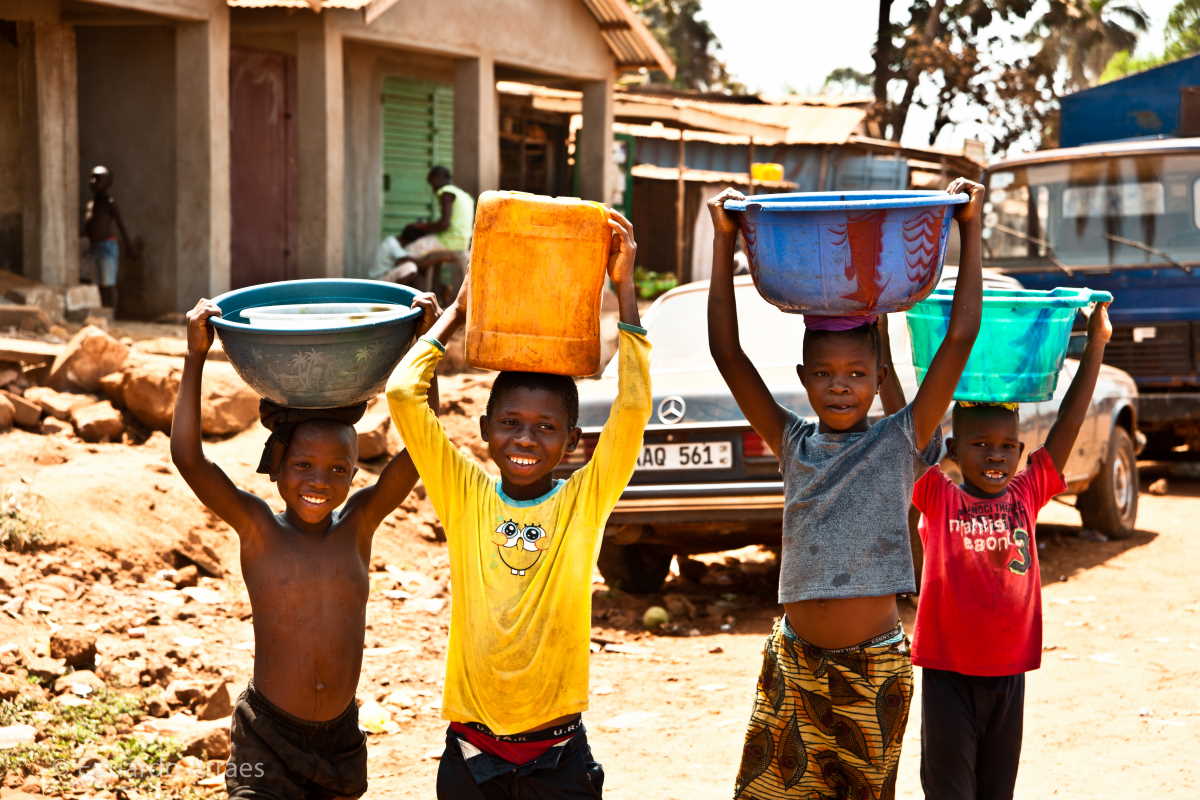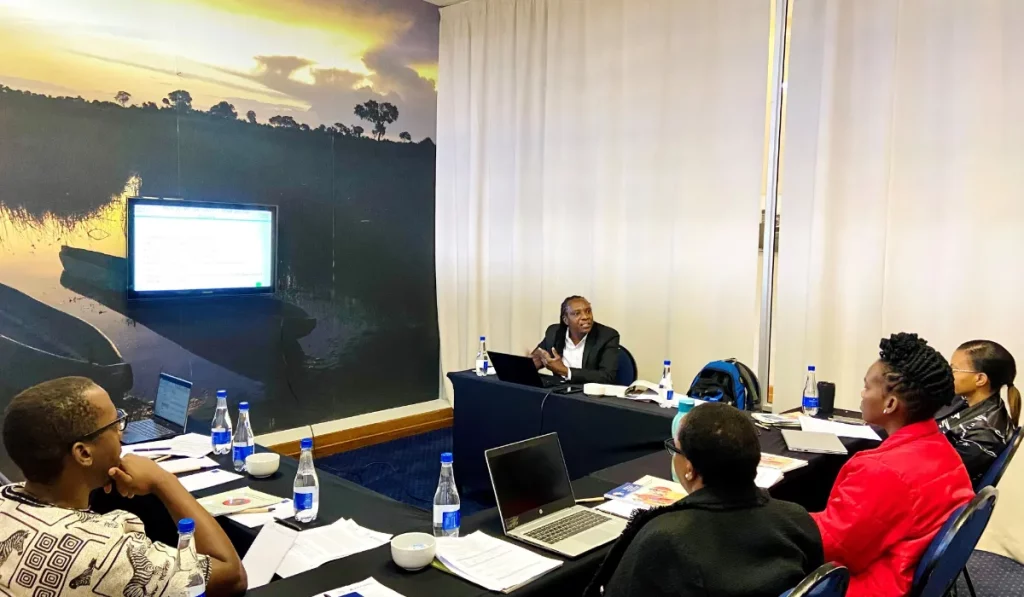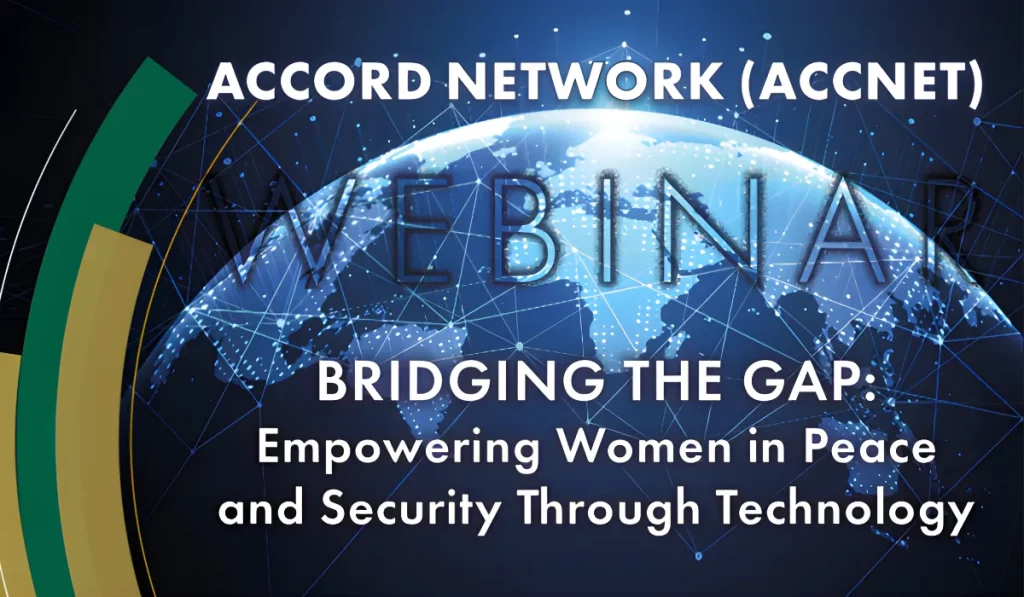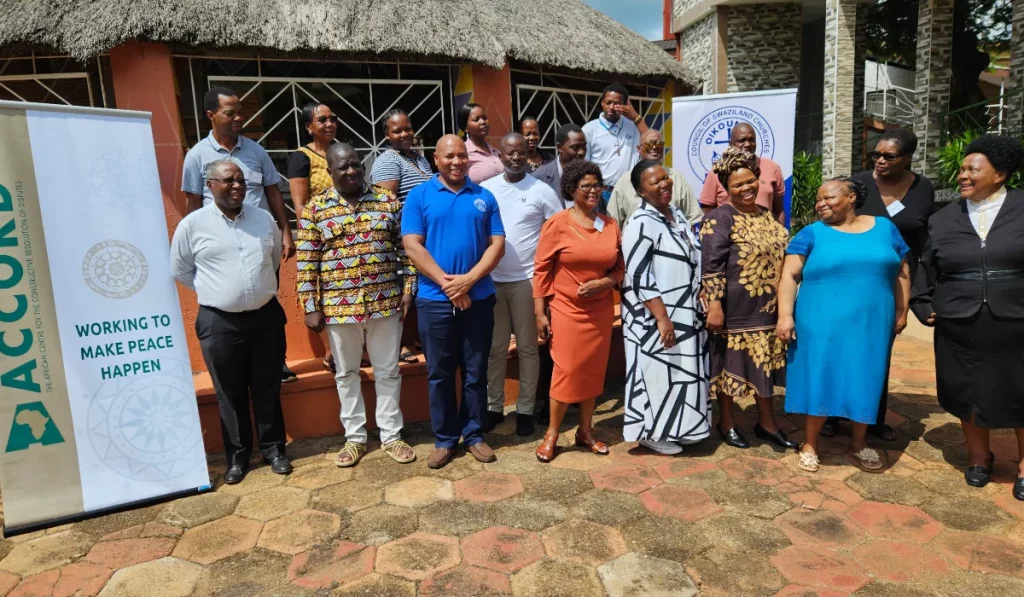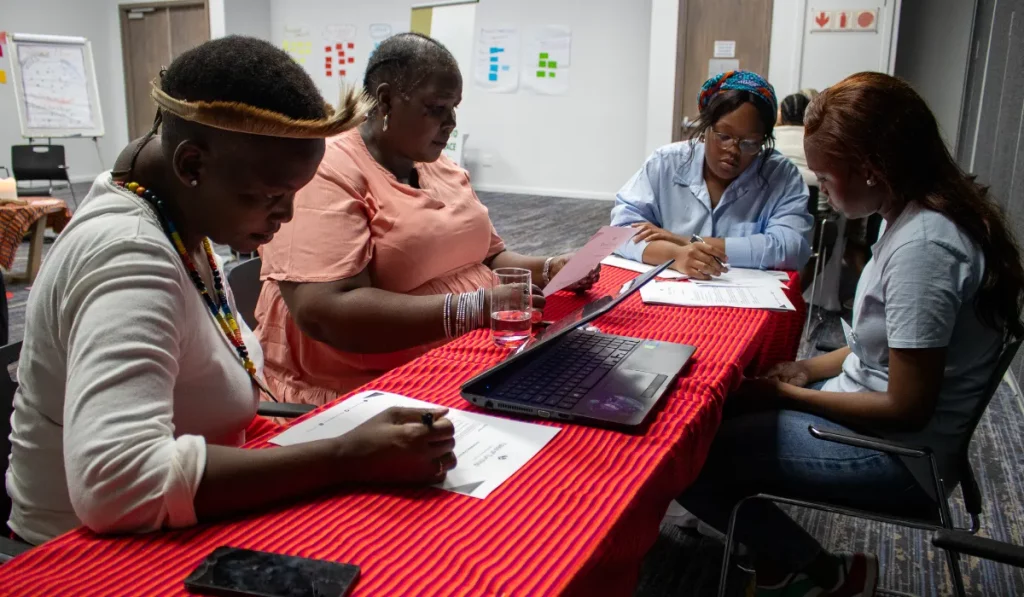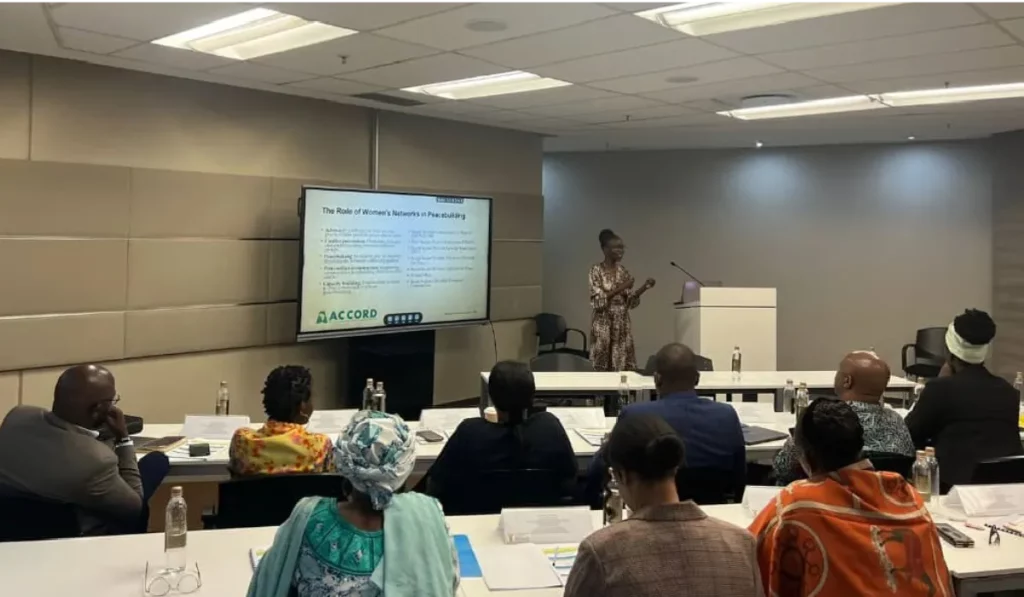ACCORD in partnership with The African Union (AU) Office of the Youth Envoy (OYE) convened a West African regional Intergenerational Dialogue (IGD) on the 27th August 2020, under the theme: Youth Silencing the Guns (STG). This was done to foster co-leadership on the theme of the year, “Silencing the Guns under Agenda 2063”. This theme was further unpacked into five different sub-themes and these included; a conflict free Africa; silencing poverty, hunger, youth unemployment; silencing gender-based violence; silencing corruption; and silencing climate change. The key speakers partaking in this dialogue included the AU Youth Envoy, Ms. Aya Chebbi, and H.E. Cessouma Minata Samate, African Union Commissioner for Political Affairs, among other esteemed panellists.
The IGD identified the key roles and activities that West African youth can play to advance the STG agenda; as well as the challenges and gaps that hinder the effective participation and contributions of the youth to silencing the guns. It further discussed ways to foster intergenerational co-leadership on silencing the guns and promotion of governance, peace, security, and development. Lastly, it provided policy and action-oriented recommendations to address the identified challenges and barriers to youth’s participation, as well as maximise opportunities and enhance their contributions.
Broadly, the recommendations from this IGD called for youth participation and inclusion in governance, youth leadership development, strengthening the understanding of ‘silencing the guns’ challenges; and enhancing of the implementation on ‘silencing the guns’ programmes.
More specifically, it was stressed that Inter-generational Dialogues (IGDs) that involve representatives of the youth, past and current leaders must be regularly convened on important issues concerning peace, stability, and development in West Africa. This should be coupled with localized, evidence-based, measurable activities that should be taken to change the narrative about youth and their role in West Africa from “avengers & perpetrators of violence” to “partners, leaders and benefactors of peace and security”. Youth leaders and youth groups must be identified and given the tools and resources to engage, organize and mobilize so that they can address high-impact issues surrounding the STG Agenda in West Africa. National as well as regional-level mechanisms need to be further established to ensure ‘sustainable livelihoods’ for the youth. This can be ensured by directly providing employment where possible and creating opportunities for self-employment and entrepreneurship (such as Youth Entrepreneurial Agencies that provide capacity-building, mentoring, and funding support). Robust processes should be implemented to ensure that youth from rural communities are actively engaged as beneficiaries, partners, and contributors to policymaking while also ensuring that better mechanisms are established to ensure the proper dissemination of information about youth-centric policies.
Additionally, it is essential to the STG agenda that the illicit movement of small weapons across borders must be proactively curtailed by:
- The encouraging of small arms manufacturers to abide by the stipulations of the ECOWAS Convention on SALW, and
- Engaging the communities residing near state-borders (particularly in the Mano-River Union region) in innovative peacebuilding activities.
This IGD was part of a series of six regional IGDs convened in cooperation with AU OYE and the Kofi Anan Foundation under the STG theme, and is in line with ACCORD’s strategic objective to strengthen the capacities of youth to participate in peace and security initiatives.

